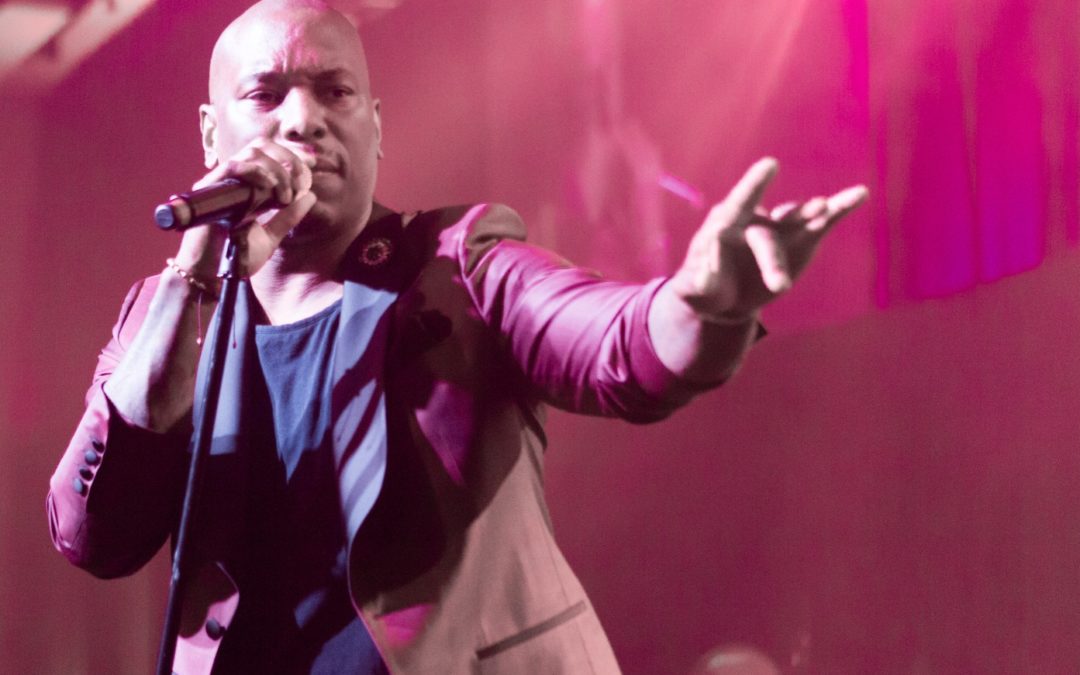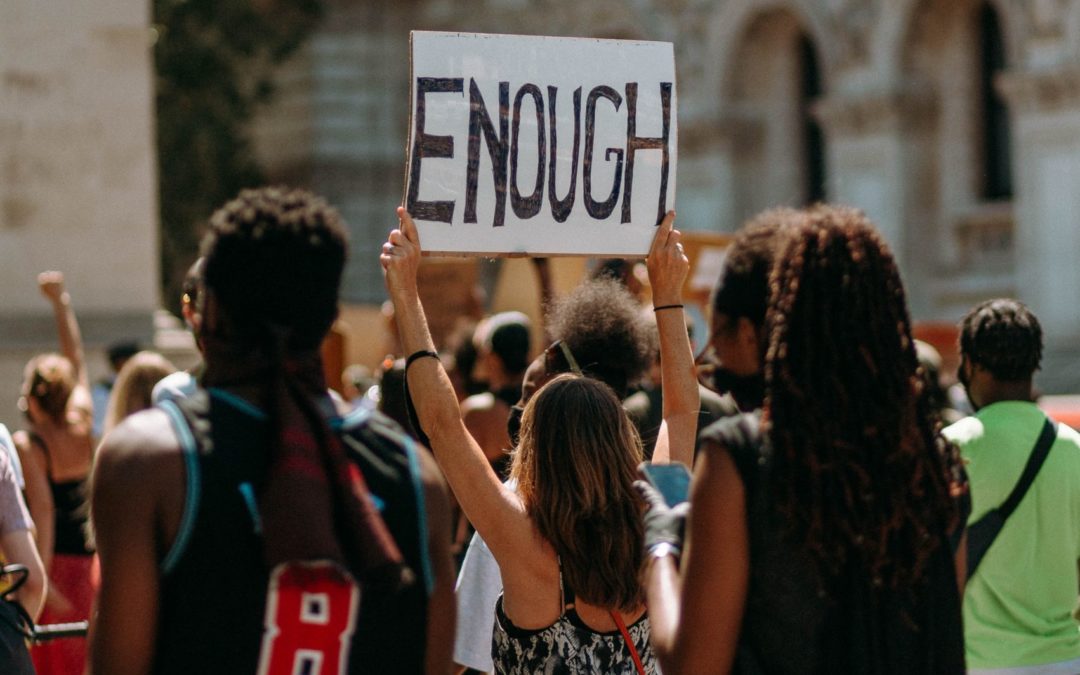
by Jonathan P-Wright | Sep 7, 2023 | Latest, Music News, New Music Alert |
Image credit: lev radin / Shutterstock.com
The world of music has been abuzz with the recent controversy surrounding the eligibility of “Heart On My Sleeve,” an Artificial Intelligence (AI) generated track featuring vocals of Drake and The Weeknd, for the upcoming Grammy Awards.
The Track: A Remarkable Feat of AI
The song, which surfaced on YouTube in April, later migrated to streaming platforms, amassing over 630,000 streams on Spotify before being taken down by Universal Music Group. It caused a stir due to its accurate replication of the artists’ vocals and lyricism, despite them not having any direct involvement in its composition.
Grammy Eligibility: A New Precedent
This week, the track was deemed eligible for Grammy consideration by Recording Academy CEO Harvey Mason Jr., who stated that “it’s absolutely eligible because it was written by a human.” This statement has sparked discussion among industry professionals, as it opens the door for AI-generated music to be considered for prestigious awards.
The Controversy: Universal’s Stand Against AI Music
While the tech world celebrates this as a victory for AI, Universal Music Group has taken a stand against the use of AI-generated music. In a statement released in April, they called AI music a “fraud,” and requested its ban from streaming platforms.
Universal Music Group calls AI music a “fraud,” and wants it banned from streaming platforms. Experts say it’s not that easy. https://t.co/g8CHWp3eH0 pic.twitter.com/DESVr3755Y
— CNN International (@cnni) April 19, 2023
The Dilemma: Embrace AI or Protect Artists?
Universal has always embraced new technology for the benefit of its artists, including having their own innovation around AI. However, they took issue with the use of their artists’ music to create AI-generated tracks, labeling it as a violation of their agreements and copyright law.
The Choice: Artists and Fans or Deep Fakes and Fraud?
Universal’s statement presents music industry stakeholders with a critical choice: to side with artists, fans, and human creative expression, or to support deep fakes and fraud, denying artists their due compensation.
The Responsibility: Platforms Must Act
Universal believes that platforms have a fundamental legal and ethical responsibility to prevent the use of their services in ways that harm artists. They are encouraged by the engagement of their platform partners on these issues, as they recognize the need to be part of the solution.
The Future: Uncertain Times Ahead
This controversy has ignited a debate that could redefine the music industry. As AI continues to advance and blur the lines between human and machine creativity, industry stakeholders will have to grapple with complex ethical and legal issues. It remains to be seen how this will play out, but one thing is certain: the music industry is in for a shakeup.
Conclusion: A Call to Action
The debate surrounding AI music and its eligibility for awards like the Grammy is more than just a legal issue. It’s a call to action for the music industry to define its stance on AI and to create norms that protect artists while also embracing innovation. As the saga of “Heart On My Sleeve” continues, it will undoubtedly shape the future of music.

by Jonathan P-Wright | Aug 30, 2023 | Latest, Music News, New Music Alert |
Image Credit: Jamie Lamor Thompson / shutterstock.com
Tyrese, a standout figure in the music industry, has continuously proven his ability to create melodies that touch the hearts of many. His latest single, “Love Transaction,” has not only stirred up conversations in the music world but has also made headlines for the personal story it reveals.
Personal Tragedy Fuels Artistic Creation
Tyrese takes a bold step by addressing his personal trials and tribulations in “Love Transaction.” The song is a raw and honest reflection of his recent divorce from Samantha Lee and their ongoing child support battle.
“I loved you, you loved me/ We were supposed to be a family/ Changed the name, then the baby came/ All those were my happy days.”
The Cost of Love: Unraveling the Lyrics
In “Love Transaction,” Tyrese poses a heart-wrenching question: “I thought that love didn’t cost a thing/ So why must I pay all these lawyer fees?” The lyrics depict his struggle with the legal and financial aftermath of his divorce.
Sweet Strains of Melancholy: The Music of “Love Transaction”
The song’s Motown-esque tones set a nostalgic mood, further enhancing the emotional depth of the lyrics. The melody beautifully captures Tyrese’s feelings of loss and regret, inviting listeners into his personal journey.
Tyrese’s Emotional Bankruptcy
As the song unfolds, Tyrese confesses to feeling “emotionally bankrupt” after his relationship. This emotional vulnerability is a testament to his courage and authenticity as an artist.
Courtroom Revelations
Tyrese’s personal experiences have led him to question the nature of his relationship with Lee. After being ordered to pay over $600,000 in back child support, Tyrese began to see his relationship in a different light.
“It was never love. It was just a transaction… Imagine being the only actor in a relationship to then realize that I was in a relationship for five years with one of the best actors I ever met in my f**king life.”
A Comparison to Remember
In a surprising turn of events, Tyrese compared his ex-wife to Donald Trump. He expressed his disbelief at her actions and refuted her claims against him.
“I don’t give a f**k how pretty she is… it doesn’t mean what she’s saying is the truth.”
A Journey Towards Future
Despite the setbacks, Tyrese remains hopeful about the future. He plans to appeal the court order and is considering making his current girlfriend, Zelie Timothy, his next wife.
“Love Transaction” in “Beautiful Pain”
“Love Transaction” is a standout track on Tyrese’s new album, “Beautiful Pain.” The album promises to be a heartfelt exploration of his personal experiences and artistic growth.
Concluding Thoughts
Tyrese’s “Love Transaction” is a testament to his ability to transform personal adversity into beautiful music. The song, while revealing his personal struggles, is also a symbol of his resilience and determination to move forward. It is a resonant reminder that even in the face of adversity, art can be a powerful medium of expression and healing.

by Jonathan P-Wright | Aug 21, 2023 | Latest, Social Justice |
In 2009, the heartwarming movie The Blind Side took the world by storm, telling the inspiring story of Michael Oher, a homeless Black teen who overcame adversity to become an NFL star with the help of his adoptive parents. However, recent revelations by Oher himself have shaken the foundation of this beloved tale. According to a petition filed in the Shelby County Probate Court, Oher claims that his adoption by the Tuohy family, the central figures in The Blind Side, was nothing more than a lie. In this article, we will delve into the shocking details of Oher’s allegations, exploring the truth behind his adoption and the repercussions it has had on his life.
The Allegations Unveiled
In August 2023, Michael Oher made headlines with a petition filed in the Shelby County Probate Court, accusing his former guardians, Sean and Leigh Anne Tuohy, of deceiving him about his adoption. According to the 14-page document, the Tuohys never legally adopted Oher, but instead convinced him to sign a document that granted them conservatorship over his business affairs. This maneuver allowed them to control and profit from Oher’s story without his knowledge or consent.
The petition, obtained by ESPN, alleges that the Tuohys used their power as conservators to secure a lucrative deal that earned them over $300 million from The Blind Side, while Oher received nothing for his integral role in the creation of the story. Furthermore, the document claims that even after the film’s release, the Tuohys continued to refer to Oher as their adopted son, exploiting this false narrative to promote their own ventures, including Leigh Anne’s work as an author and motivational speaker.
Unraveling the Fabricated Tale
The story of Michael Oher’s adoption, as portrayed in The Blind Side, captivated audiences around the world. Based on the 2006 book by Michael Lewis, the film highlighted the extraordinary journey of a young man who overcame immense challenges to achieve success both on and off the football field. However, Oher’s recent revelations have cast doubt on the authenticity of this narrative.
According to Oher’s petition, the lie of his adoption was only discovered in February 2023. He learned that the conservatorship he had agreed to, under the belief that it would make him a member of the Tuohy family, provided him with no true familial relationship. This revelation left Oher feeling not only deceived but also deeply embarrassed by the fact that the story of his adoption, so widely celebrated and embraced, was nothing more than a fabrication.
Impact on Oher’s Life and Career
The fallout from the alleged deception surrounding Michael Oher’s adoption has had a profound impact on his life and career. As a renowned NFL star, Oher’s story became synonymous with resilience and triumph, inspiring countless individuals around the world. However, the revelation that his adoptive family manipulated and profited from his narrative has undoubtedly left a lasting mark on his psyche.
The petition filed by Oher highlights the financial disparities between himself and the Tuohys, with the family reportedly earning over $300 million from the film while Oher received no compensation. This stark contrast in financial gain further amplifies the sense of exploitation and betrayal experienced by Oher.
The Aftermath and Legal Battle
Following the filing of the petition, the legal battle between Michael Oher and the Tuohys is expected to intensify. The allegations made by Oher raise significant questions about the ethical implications of profiting from someone else’s life story without their full consent and involvement.
As the case unfolds, it will be crucial to examine the evidence presented by both parties, ensuring a fair and just resolution. The outcome of this legal battle could have far-reaching implications for the entertainment industry, shedding light on the need for transparency and ethical practices when portraying real-life stories on the big screen.
Reassessing the Legacy of The Blind Side
With the revelation that the story behind The Blind Side may have been built on a lie, it becomes necessary to reassess the legacy of this critically acclaimed film. While the movie undoubtedly resonated with audiences and shed light on important issues such as homelessness and racial inequality, its credibility now hangs in the balance.
It is essential to separate the fictionalized narrative presented in The Blind Side from the real-life experiences of Michael Oher. By doing so, we can gain a deeper understanding of the complexities and challenges faced by individuals like Oher, who must navigate not only their personal struggles but also the exploitation that can come with their stories being adapted for mass consumption.
Lessons Learned and Moving Forward
The allegations made by Michael Oher regarding his adoption and the subsequent exploitation by the Tuohy family serve as a stark reminder of the importance of ethical storytelling. It is crucial for creators and consumers of media to recognize the potential harm that can arise from the manipulation and appropriation of real-life narratives.
Moving forward, it is imperative that we prioritize authenticity and respect when sharing and consuming stories that are rooted in the lived experiences of others. By doing so, we can create a more inclusive and empathetic cultural landscape that celebrates the voices and agency of the individuals whose stories are being told.
Conclusion
The shocking revelations made by Michael Oher regarding his adoption have cast a cloud of doubt over the beloved film The Blind Side. As the legal battle unfolds, it is essential to examine the evidence presented by both parties and strive for a fair and just resolution.
This case serves as a reminder of the power and responsibility wielded by storytellers, highlighting the need for ethical practices in portraying real-life stories on the big screen. By reassessing the legacy of The Blind Side and learning from this experience, we can move towards a more authentic and inclusive approach to storytelling.

by Harris | Aug 15, 2023 | Latest, Social Justice |
A TikTok video shared by user careyann327 has ignited a wave of concern and outrage as it purportedly captures the arrest of a young Black child in Lansing, MI. The incident, which occurred on August 10, has sparked discussions about the treatment of minors by law enforcement officers and the broader issues of accountability and sensitivity.
In the video, a scene unfolds that shows the young Black child being apprehended by what appears to be a Lansing police officer. According to individuals heard in the background, the child was reportedly engaged in a simple act – taking out the trash from his residence – when the unexpected encounter with the police took place.
As the situation escalates, additional officials arrive on the scene to provide support to the lone officer. Amid the unfolding confusion, an older Black man, believed to be the boy’s father, approaches the scene to ascertain the nature of the incident. Although much of the conversation remains unintelligible, the concerned man can b e heard describing the child as “perfect.” He questions the necessity of subjecting the child to handcuffs, expressing his concern that such actions could potentially inflict lasting emotional “trauma.”
The incident has stirred a passionate debate in online communities, with commenters expressing a range of emotions and opinions. Many have called for the parents of the child to take legal action against what they perceive as an unjustified use of authority. Others have shared sentiments of skepticism towards law enforcement, emphasizing the importance of understanding one’s rights and involving legal representation when interacting with officers.
This incident serves as a stark reminder of the complex dynamics between law enforcement and marginalized communities, particularly involving minors. The video has raised important questions about the appropriateness of using handcuffs on children, the need for transparent and fair policing practices, and the broader implications of such encounters on young individuals.
As discussions continue, the video serves as a catalyst for broader conversations about police conduct, community relations, and the wellbeing of vulnerable populations. The incident has ignited a renewed call for accountability and sensitivity in law enforcement interactions with individuals, regardless of their age or background.

by Jonathan P-Wright | Aug 10, 2023 | Latest, Social Justice |
The name O’Shae Sibley has become an indelible mark of sorrow and remembrance, embodying a life tragically cut short by a heart-wrenching incident. As the nation grapples with the weight of loss, a teen has taken a pivotal step in the narrative by surrendering to the authorities, potentially setting the stage for justice to unfold in the aftermath of Sibley’s untimely passing on July 29.
A somber chapter unfurled as a 17-year-old male, his history marked by previous arrests, chose to step forward and confront the gravity of his alleged actions. The act of surrender took place on a fateful Friday, August 4, in the heart of New York City, casting a spotlight on the intricate web of legal proceedings that lay ahead for this young individual.
The charges leveled against the teen are profound and carry the weight of the law. Accused of murder and the chilling classification of a hate crime, the alleged act speaks to the intersection of personal violence and broader social dynamics. The additional charge of criminal possession of a weapon underscores the deeply tragic consequences of these alleged actions.
While the teen’s identity remains shrouded in anonymity, hidden behind the veil of juvenile protection, the reverberations of his alleged involvement are felt throughout the community. The decision to seal his records is a reminder of the delicate balance between justice and the rights of minors. In a narrative already laden with complexities, the Brooklyn district attorney contemplates the potential for more charges to be added, illuminating the intricate layers of the case.
Sibley’s life story is etched with heartache, a 28-year-old Black gay man whose existence was abruptly ended through a fatal stabbing. The backdrop for this tragedy was an unassuming gas station, where a routine evening turned into a chilling scene of violence. The loss of a beloved dancer sent shockwaves through the community, sparking an outpouring of grief and a resounding condemnation of homophobia on social media.
Communities came together in poignant solidarity, transforming gas stations into spaces of remembrance. Dances and voguing, vibrant embodiments of self-expression, became poignant tributes to Sibley’s vibrant spirit. Even icons like Beyoncé joined the chorus of voices, using their platforms to honor Sibley’s memory and call for an end to hate-fueled violence.
As the legal process takes its course, propelled by the teen’s voluntary surrender, the wheels of justice inch forward, navigating the complexities of a case that holds profound societal implications. The narrative of O’Shae Sibley’s life and loss has thrust issues of hate crimes, community safety, and equitable legal proceedings into the public discourse.
The legacy of O’Shae Sibley is one that transcends sorrow. It has become a rallying cry against bigotry, intolerance, and violence. In a world that grapples with discrimination, his memory compels us to stand firm against injustice, champion the values of acceptance and compassion, and work towards a future where tragedies like his are relegated to history.








RECENT COMMENTS